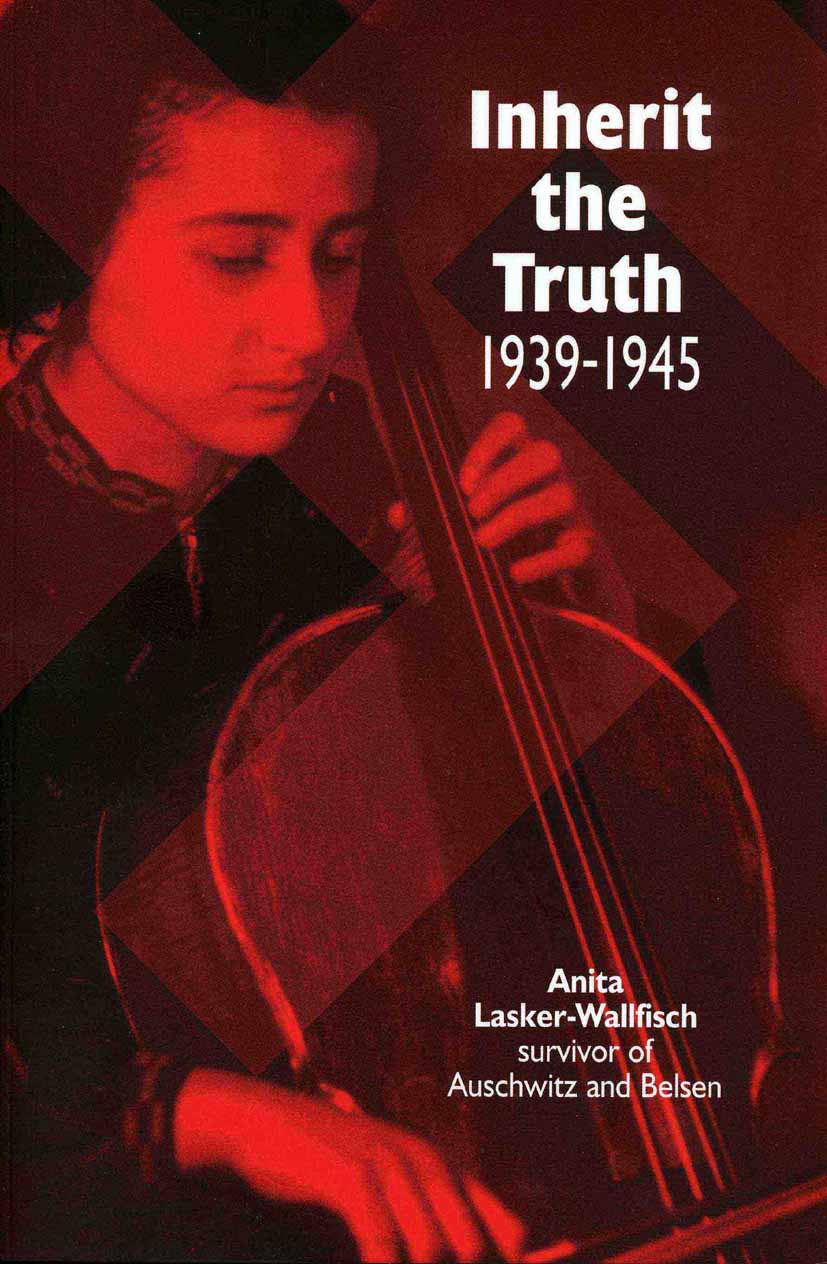|
Inherit the Truth 1939-1945
The Documented Experiences
of a Survivor of Auschwitz and Belsen

Anita Lasker-Wallfisch
Inherit the Truth 1939-1945:
The Documented Experiences of a
Survivor of Auschwitz and Belsen
(ISBN 9781900357012
eISBN 9781900357371)
was published in April 1996 as a paperback original,
and was reprinted for the 4th time in 2005.
Foreword by Sir Martin Gilbert.
184 pages 234 x 156 mm 42 black & white illustrations
£12.99
Walter Laqueur, Center for Strategic & International Studies, Washington: 'It is my job...to read most of the current literature on the Holocaust, and if someone had the time and inclination to read only one book published recently, I would...choose without hesitation a small book [Inherit the Truth] which appeared last month in England...it is precisely as a historian that I recommend this account...'
Anita Lasker-Wallfisch on 'Seven PM Channel 4 News', 27th January 2005, 60th anniversary of the liberation of Auschwitz: 'There had always been rumours about gas chambers. But, you know, one didn't believe it...By the time I was sent to Auschwitz, we knew...I became a member of the women's orchestra in Auschwitz. We were the entertainment. We were also the show-piece. I'm sure if some people did come...they weren't going to show the gas-chambers. They would show the orchestra...We lived a charmed life, but we knew as long as there was music there, we'll be OK. The moment they don't want us any more we'll go to the chimney...'
Anita Lasker-Wallfisch from 'Holocaust: A Music Memorial Film from Auschwitz', BBC 2, 22nd January 2005: 'They reduced us to nobodies. Creatures. We were living in an abyss of unspeakable terror. And it would be time to play music...My claim to fame is that I played the Träumerei of Schumann to Dr Mengele. And you know Mengele was the guy who did the experiments on twins...it's a complete enigma...Music is something that you can have in your head which is completely divorced from what's actually happening outside. You could retreat on an island -- just to get away from what is actually happening...it can act as an escape mechanism...a sort of spiritual escape for a few minutes, out of the camp.'
Description
The BBC documentary THE LAST MUSICIAN OF AUSCHWITZ, screened in January 2025, tells the story of Anita Lasker-Wallfisch. INHERIT THE TRUTH is her remarkable memoir.
INHERIT THE TRUTH is the story of the destruction of a talented Jewish family, and of the survival against all the odds of two young sisters. It is one of the most moving stories to emerge from the Second World War. Anita and her elder sister Renate defied death at the hands of the Gestapo and the SS over a period of two and a half years when they were sucked into the whirlpool of Nazi mass extermination, being first imprisoned as 'criminals' and then being transferred, separately, to Auschwitz, and finally to Belsen when the Russians approached. They were saved by their exceptional courage, determination and ingenuity, and by several improbable strokes of luck. At Auschwitz, Anita escaped annihilation through her talents as a cellist when she was co-opted into the camp orchestra directed by Alma Rosé, niece of Gustav Mahler.
<> Her book is especially remarkable because of the many documents she has managed to preserve, most of them now lodged in the archives of the Imperial War Museum in London. In a sequence of family letters to her sister Marianne, who was marooned in England, from just before the war to 1942 when her parents were deported and liquidated, an atmosphere of happy normality gradually gives way to latent terror and foreboding. The appalling predicament of the Lasker family, and of Anita and Renate in particular when the rest of their relations had been deported and they were left totally alone in Breslau, could not be more poignantly conveyed. They were caught by the Gestapo trying to flee to Paris, and sent to prison: another piece of 'luck', as it turned out, since they were spared the worse horrors of Auschwitz for a crucial year.
<> After the liberation of Belsen in April 1945, the correspondence with Marianne in England resumed. Anita was seconded to the British Army, and she quotes first-hand material about the early days of the occupation, including a transcript of part of the Lüneburg trial in late 1945 when she gave evidence about Nazi atrocities at Auschwitz and Belsen, and was confronted in court by her tormentors. In 1946 she and Renate were both finally permitted to emigrate to England. Three years later, Anita became a founder member of the English Chamber Orchestra.
Author
Anita Lasker-Wallfisch was brought up in Breslau, in Silesia, the daughter of a distinguished lawyer, Alfons Lasker, whose brother Edward became an American chess champion. At the age of thirteen she studied the cello with Leo Rostal in Berlin, until the 1938 Kristallnacht forced her to return home. After surviving the war, she managed to emigrate to England in 1946; and in 1949 she became a founder member of the English Chamber Orchestra, with which she still plays. She married Peter Wallfisch, the pianist, and has two children, Maya and Rafael, who is also a celebrated cellist.
|